
Summer's lease hath all too short a date, but summer returned for one more Sunday, and so did our watching Shakespeare in the park. On a beautiful late afternoon, we sat on the grass off Prospect Park West by Litchfield Villa saw an excellent informal. but sleekly professional, production of Romeo and Juliet by the Curious Frog Theatre Company.

The Astoria-based Curious Frog Theatre Company's self-described mission:
to present new, modern and classical works with the goal of showing a new, multicultural perspective through non-traditional casting that does not hinder understanding or believing a work, but rather enhances the work in an innovative manner and fosters fresh perceptions
In this Romeo and Juliet, company director Reneé Racan Rodriguez has succeeded admirably. It's a fast-paced, well-acted production that seems stripped to its essentials without sacrificing any of the beauty of the language or the vibrancy of the classic tragedy of thwarted barely-mature love.

Rodriguez adapted Shakespeare's text so that, we presume, it could be played with minimal scenery (the only substantial piece serves as a bench, bed and bier) in various parks around the city. Also, this Romeo and Juliet features just six actors (Curious Frog's other summer production, Aristophanes' Plutus, employs a cast of seven).

Rodriguez also directed the play and played both Lady Capulet as a martini-drinking, social-climbing, somewhat distracted matron and Mercutio as a bustier-wearing, punkish gal-pal to Romeo and Benvolio who's more macho than either of them. You might think she'd be wearing too many hats here, but somehow she pulls it off like a magician's sleight-of-hand.


She's written that in looking to adapt Shakespeare's work, she wanted to strive for "a reflection of love in our society today" but as she cut, she "felt something dark emerge," that
every single character. . . contributes one defining moment, one choice that directly contributes to the tragic demise of the two lovers. How would that translate to where we are now?
When I ride the subway, walk the streets, range the airports, almost everyone I see is on a cell phone or MP3 player. We see people in their most intimate moments - and they are complete strangers. The peopole who we know, though, are the ones we are forever texting and emailing but rarely ever see fact to face.

Reading that in the program, we had a heart-sinking feeling, but in fact in this production we don't get some didactic exploration of technology in our lives: Romeo's ever-present iPod buds, Juliet's laptop "friending" and the cell phones several characters carry are subtle additions, signifying something but not detracting from the stage business, which is essentially face to face - though with a couple of tragic exceptions. (If you really stop to think about it, effective cell phone use could have mitigated most classic tragedies.)

The audience, about 40 to 50 with several groups of passersby stopping to stay till the end, sat on the grass, not all that far from the sidewalk and street of Prospect Park West with its cars, yelling kids, barking dogs and the B-69 bus. Behind and above the performance area was the imposing castle of Litchfield Villa, a good enough suggestion of Renaissance Verona as you're likely to find in Prospect Park.

But the six-member cast, dressed mostly in fairly informal contemporary clothes, dealt well with the exigencies of performing onsite outdoors. Leo Giannopolous, who played Romeo, used the audience particularly well, sitting down at one point between a little boy and his parents and addressing some of his comments to the kid. We're glad we didn't realize that at one point Nick Maccarone, a loose and playful Benvolio, literally jumped over us to get "onstage."

Maccarone also played Paris, and like the other three actors playing dual roles, he was able to create distinct characters so that there was never any confusion. He even managed to modulate his voice differently so that even when the scene changes were lightning quick near the play's end, it was clear when he was Benvolio and when he was a Paris whose fragility is barely hidden behind his noble formality.

Director Rodriguez, as we said, also played two characters who could not be more distinct, and she succeeded with both. As a somewhat unstable Tybalt who appears to be suffering from both ADHD and PTSD from some war (the Marines T-shirt was a nice touch) and as a less dithery, more cunning Nurse (still sympathetic, she also appears to be a greedy shopaholic, at one point loaded down with shopping bags from Macy's and specialty stores), Shannon Pritchard was excellent.

As Prince Escalus, the blazer-and-rep-tie-wearing Allen Hope Sermonia seemed to be channeling Tony Blair - not a bad choice - but Sermonia worked wonders with the role of Friar Laurence, who comes across not only as a gentle, well-meaning and bemused counselor (most of his advice is actually pretty bad) but also, like the Nurse, somewhat self-serving.

The unceasing action, in which scene followed scene in different parts of the stage area on the grass, seemed to fade in/fade out as in a film when it's done seamlessly. Romeo and Juliet has a lot of joking around, and this production emphasized the essentially frivolous nature of the characters who get caught in a tragic situation that here seems more the result of stupidity than anything else.

To that end, Elizabeth Spano's Juliet comes on like a Catholic-school Valley Girl at first, but gradually reveals a depth so that the airheaded Juliet seems a pose she'd adopted and feels free to discard once she sees the depth of Romeo's devotion. It's not that love and teenage lust isn't present in her performance - superficially, Giannopoulos' Romeo looks like a hunky lunkhead in his V-neck T-shirt, but early on, he suggests that that, too, is a pose - but it's clearly more than that.

Giannopoulos was superb, to the point where the production seemed to pivot more on his variegated performance than anything else. But in the play's title, Romeo comes first after all, and he may have the most complex emotional dilemmas of any of the charcacters.

Some bits of business were especially done, and the sword fights were staged well. Except for Juliet, the actors playing the younger characters were incredibly graceful and very physical. There was a lot of roughhousing among the friends Romeo, Benvolio and Mercutio (Maccarone moved especially fluidly even when he wasn't jumping over us).

As a fight between two women, the battle between Pritchard's Tybalt and Rodriguez's Mercutio was amazingly resonant. It could have gone really wrong, like one of those cringe-worthy Dynasty catfights, but instead here we had two very strong and strong-headed women. Anyway, kudos to fight choreographer Jacob Grigolia Rosenbaum, assisted by Rocio Mendez, and to the movement director, Marie Morrow.

And, yeah, although we didn't quite tear up at the end, we did get a catch in our throat. For us, the production was quite successful. We were impressed that so many little kids managed to maintain their interest as the play wore on; they clearly couldn't have been understanding everything, so either Park Slope parents are doing a better job in raising well-behaved children than anyone lets on or else the Curious Frog troupe managed to pull off an impressive feat in this Romeo and Juliet.

We're pretty sure it's the latter, and we're really grateful they gave us a chance to see Shakespeare in the park again in the waning wanton air of summer. Curious Frog Theatre Company's last weekend is coming up next Saturday and Sunday: September 19 is Plutus at Queensbridge Park, and September 20 is R&J at Astoria Park.





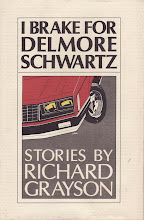

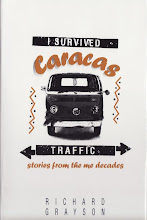


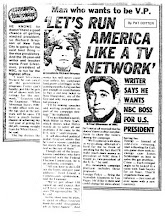







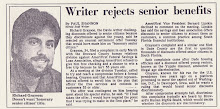








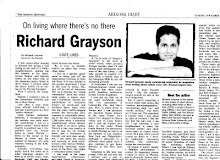




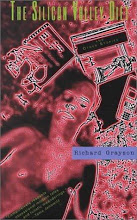

No comments:
Post a Comment